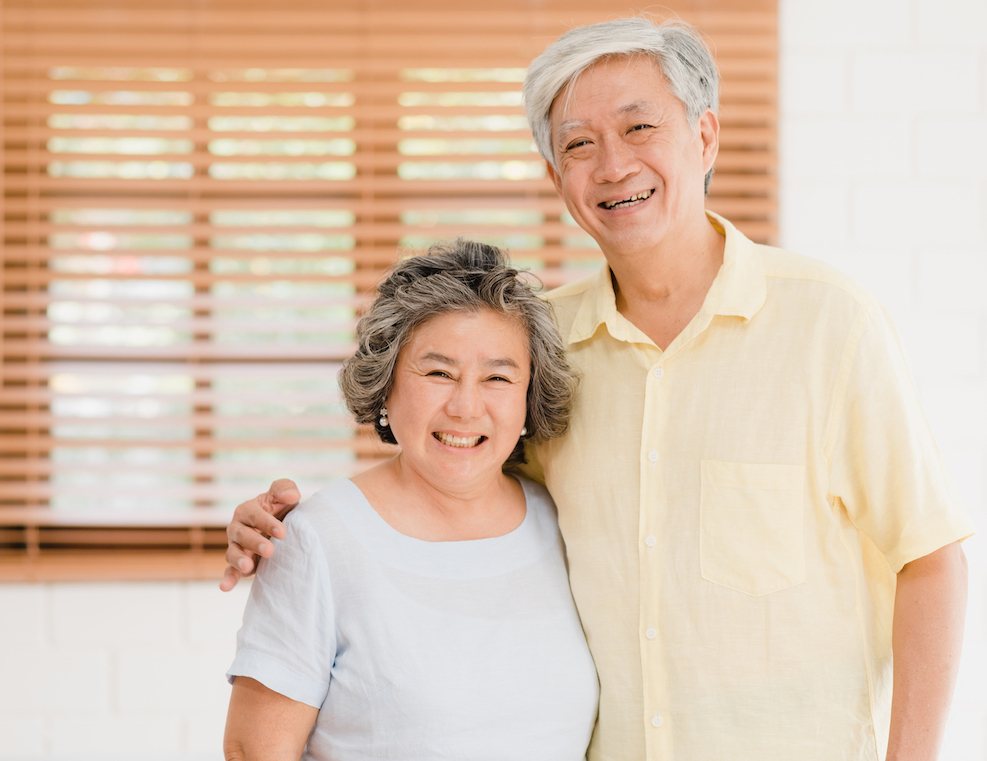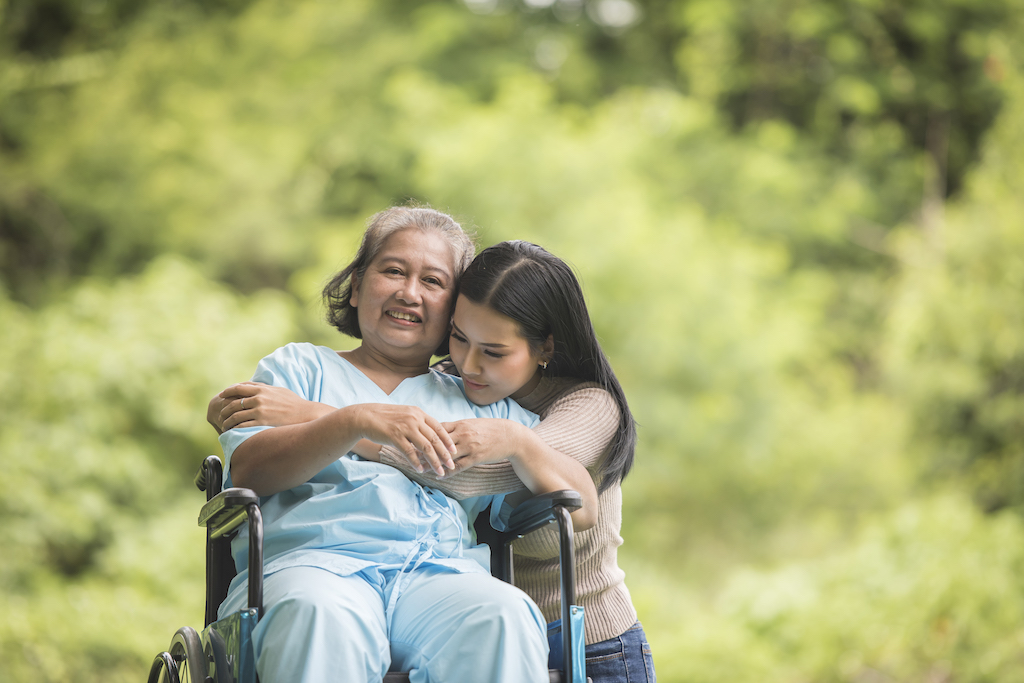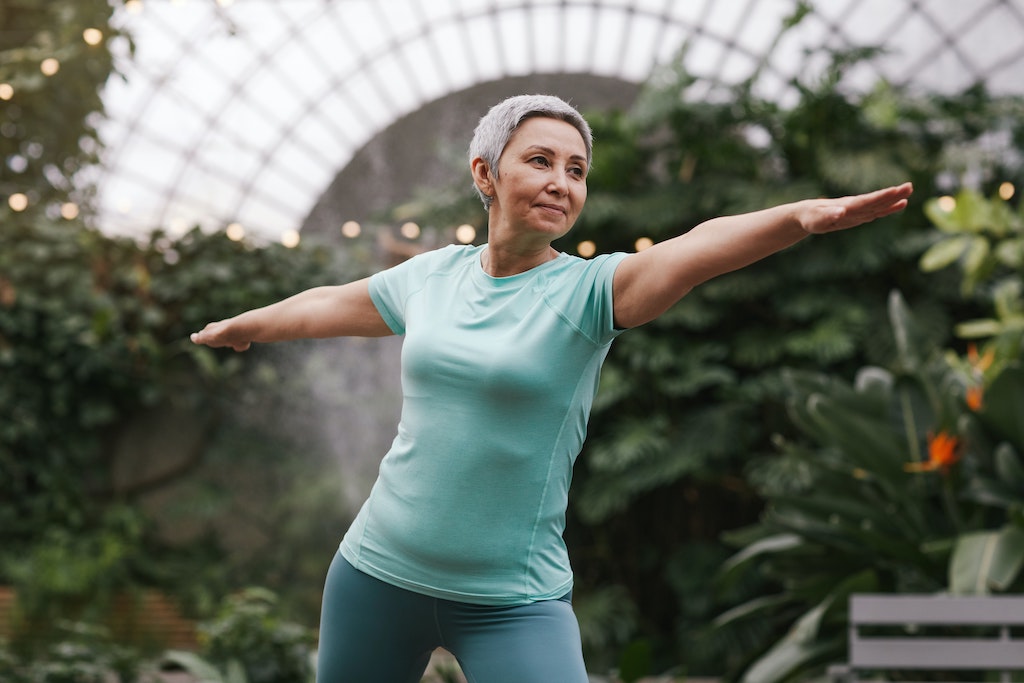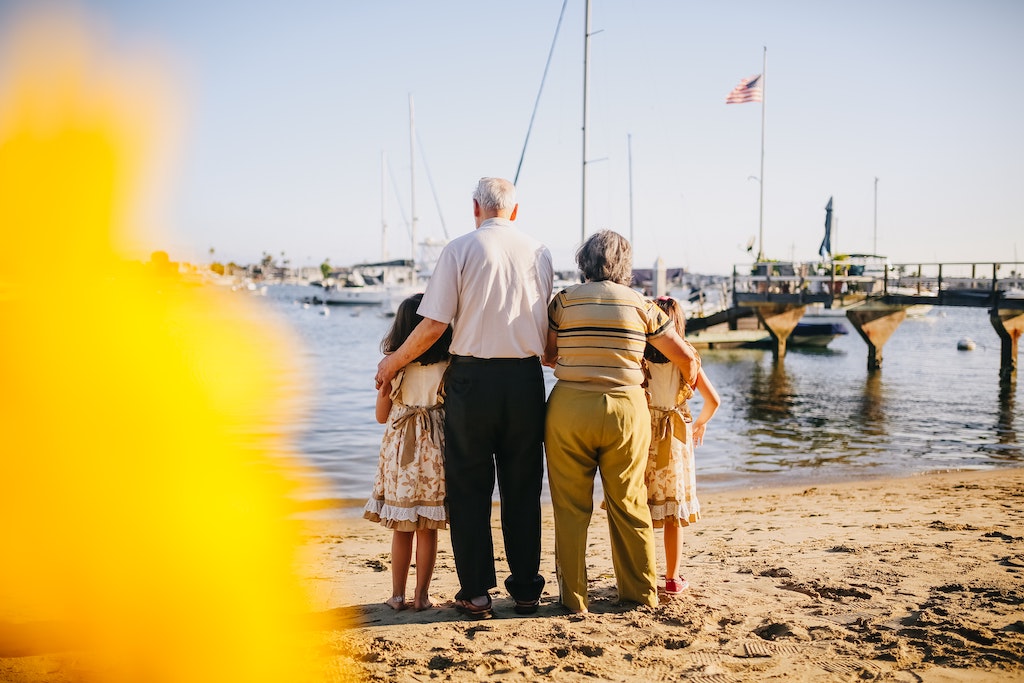SingaporeMotherhood | Lifestyle
June 2023
Stress and Seniors: 10 Ways to help Grandma and Grandpa Feel Better

Stock photos like the one above, and children’s stories generally paint the elderly as a wise, benevolent lot with calm, patient smiles, and a loving word for everyone. But this is not always a true picture, is it? During the pandemic, older adults experienced increased stress. Their mental health was significantly affected, SMU’s Centre for Research on Successful Ageing found. This was due to decreased social participation, reduced physical activity, and increased sedentary behaviour (source).
But even post-pandemic, seniors, particularly those aged 65 and above, experience higher levels of stress compared to others. Additionally, they are less likely to seek professional help for their mental health concerns (source: National Population Health Survey).
Could our elderly loved ones are not as happy and content as we believe them to be? Christina Loh, Head of Nursing at Allium Healthcare, shares why they may be stressed, and what we can do to help.
What causes the elderly to feel stress?

Physical
Among the most prevalent physical stressors are age-related health issues. These may include chronic conditions such as heart disease, diabetes, and arthritis. Decline in physical fitness, leading to reduced mobility and independence, is also a common stressor. Chronic pain, which can result from age-related health issues, may also cause physical discomfort and impact daily living.
Mental
Mental stressors could manifest in cognitive decline, which may include memory loss and difficulty with decision-making and problem-solving. The fear of cognitive decline is also a common stressor, which can lead to anxiety and depression. Financial worries may also be a source of mental stress, particularly for seniors who have limited savings.
(See also: 10 Effective Ways to Help your Child Cope with Stress)
Emotional
Feelings of loneliness and isolation are common among seniors who have lost friends and family, or have limited social connections. The loss of loved ones, particularly if it is a spouse or close family member, is painful as well. Changes in roles and identity, such as retirement or becoming a caregiver, may also cause stress as they adjust to new roles and responsibilities.
Social
Finally, social stressors include reduced social connections, which may result from retirement, loss of mobility, or changes in living arrangements. Changes in support networks, such as the loss of a caregiver or the need for additional support, may also cause stress. Caregiving responsibilities, particularly for seniors who may be caring for a spouse or family member, can also be a significant source of stress.
Why is it harder for them to handle stress?
Like all of us, seniors are individuals with their own unique personalities and experiences. Hence it is not surprising that their responses to stress will vary. Nevertheless, there are certain traits commonly found among seniors that may make stress management more challenging for them.
These include physical health issues such as chronic pain or mobility issues which impact their ability to engage in stress-relieving activities. In addition, cognitive changes such as memory loss or difficulty concentrating may cause them to feel frustrated or anxious about their ability to perform daily tasks.
Limited social support, reduced resilience, emotional vulnerability, a fixed mindset, and a reluctance to seek help also contribute to increased stress levels.
How can families help them cope with stress?

Families are an essential source of support for seniors in managing stress. Here are some ways you can assist your senior loved ones in coping with stress:
- Listen without judging and encourage them to express their feelings
- Offer emotional support, understanding, and empathy
- Encourage them to participate in social activities and connect with others
- Help them maintain healthy habits and engage in activities they enjoy
- Assist them with practical tasks and encourage self-care activities
- Encourage them to seek professional help if needed
- Help them pursue activities that bring purpose and meaning to their lives
- Stay informed about available support services and be patient and understanding in your interactions with them
Remember that each senior is unique, so involve them in decisions regarding their own well-being. With support and understanding, you can help your elderly loved ones manage stress and improve their quality of life.
10 Easy Ways to Help Seniors / the Elderly Manage Stress

1. Encourage relaxation techniques like deep breathing, meditation, or gentle exercises to reduce stress hormones and promote calmness.
2. Encourage physical activity appropriate for their abilities, like walking or stretching, to release mood boosters and reduce stress levels.
3. Create a daily routine to provide them with stability, predictability, and a sense of order.
4. Help them establish a calming bedtime routine, a consistent sleep schedule, and a comfortable sleep environment for better sleep quality.
5. Encourage them to maintain social connections by joining clubs or attending community events.

6. Engage them in activities that stimulate cognitive abilities and mental engagement, like reading or puzzles.
7. Encourage expressive activities like journaling or creative writing for emotional expression and stress reduction.
8. Create a safe and supportive environment where they feel comfortable expressing their feelings and concerns.
9. Familiarise yourself with available support services and resources for them.
10. Emphasise the importance of self-care practices for the whole family to create a culture of well-being.
Resources for Seniors in Singapore
In Singapore, people aged 60 and above are considered senior citizens (Senior Citizen Act of Singapore). As of 2022, the percentage of citizens aged 65 and above has risen to 18.4%. This is an increase from 11.1% in 2012 and 17.6% in 2021.
By 2030, nearly one in four citizens (23.8%) will be aged 65 or above.
Population In Brief report
Seniors in Singapore have access to a wide range of resources and support services, such as:
Senior Activity Centres. These offer opportunities for socialisation, learning, and support, while Community Development Councils offer financial assistance, social activities, and wellness programs.
National Silver Academy. Offers learning opportunities across different fields, empowering seniors to continue their personal growth and development.
Voluntary Welfare Organisations. They provide essential services such as eldercare, home care, counselling, and social support to address specific needs.
Silver Generation Office. A comprehensive resource centre that offers seniors a one-stop hub for information and assistance.
In terms of healthcare, dedicated healthcare institutions provide comprehensive medical care, specialised geriatric services, and outpatient services. These ensure that seniors receive the necessary support to maintain their health and well-being.
No more Stress: Living it up in their Third Age

With resources widely accessible, most of the elderly in Singapore are able to live out their sunset years well. One thing that helps is living together with loved ones. The advantages go both ways. Having seniors at home has benefits for their children, and their children’s children too.
The most obvious? Childcare. Grandparents can help look after their grandchildren, giving parents leeway when it comes to juggling work and personal lives. Date nights? Couple trips? They’re all easier to plan when grandpa and grandma are there to help watch the little ones.
(See also: TCM Herbal Soups and Tips to Help Your Child Focus and Stay Healthy and Stress-free)
Living with seniors can also strengthen family connections and promote a sense of belonging. This is because they pass on traditions, offer advice, and share experiences. Seniors who lead active lifestyles also serve as positive examples as they encourage healthy habits.
However, as each family’s situation is unique, it is important to consider individual circumstances, health conditions and caregiving needs. At the end of the day, communication, respect, and understanding are essential. These will foster a harmonious and supportive family environment, and help our elderly loved ones stress less.
Featured image: tirachardz on Freepik
All content from this article, including images, cannot be reproduced without credits or written permission from SingaporeMotherhood.
Follow us on Facebook, Instagram, and Telegram for the latest article and promotion updates.





